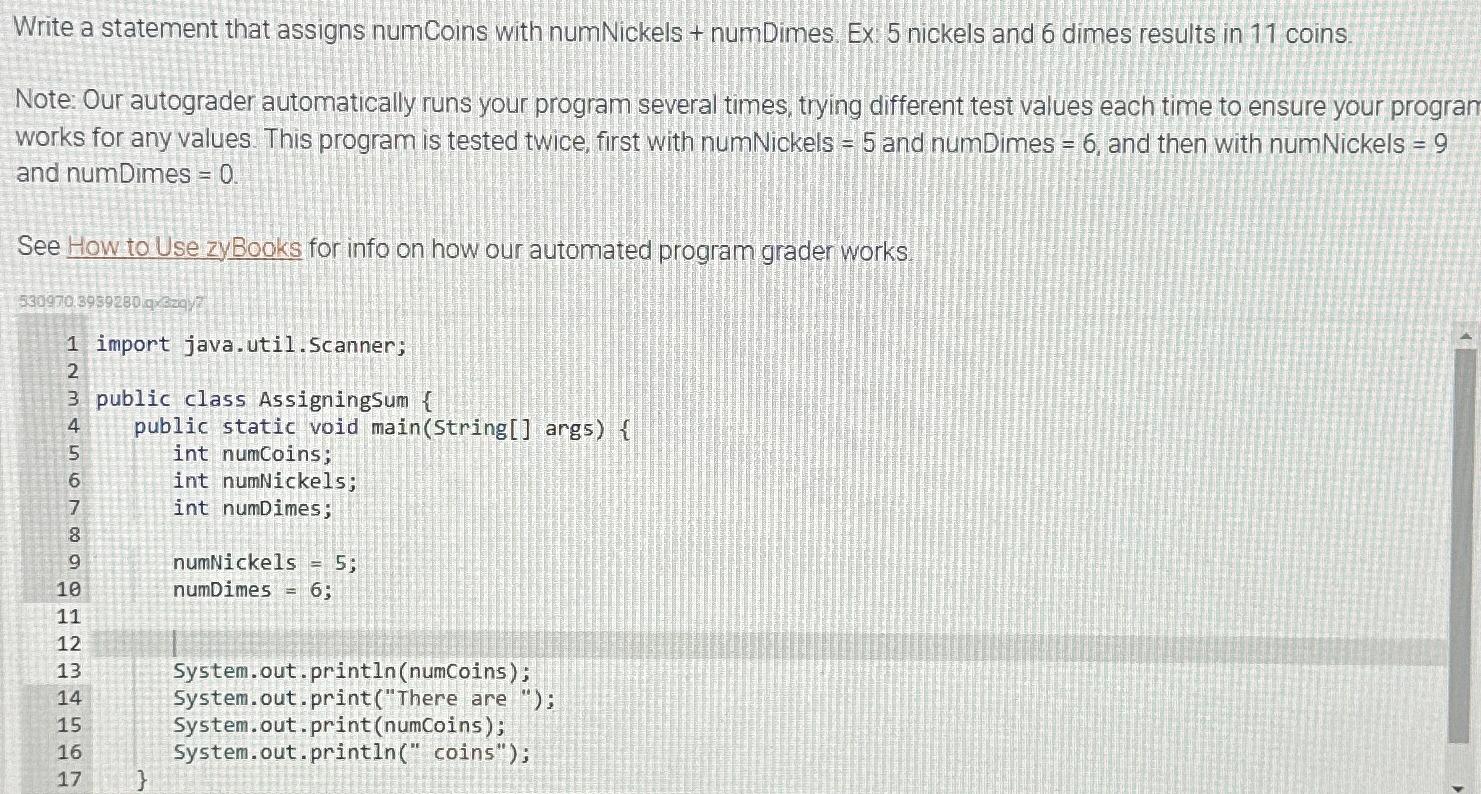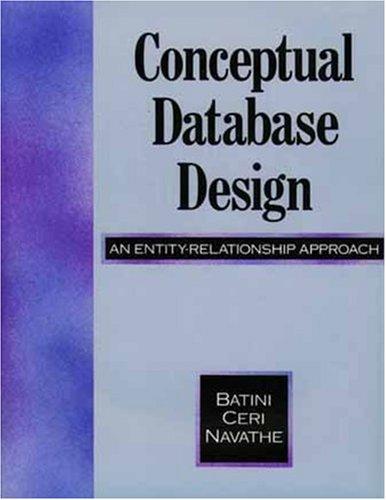Answered step by step
Verified Expert Solution
Question
1 Approved Answer
Write a statement that assigns numCoins with numNickels + numDimes. Ex: 5 nickels and 6 dimes results in 1 1 coins. Note: Our autograder automatically
Write a statement that assigns numCoins with numNickels numDimes. Ex: nickels and dimes results in coins. Note: Our autograder automatically runs your program several times, trying different test values each time to ensure your progran works for any values. This program is tested twice, first with numNickels and numDimes and then with numNickels and numDimes See How to Use zyBooks for info on how our automated program grader works. import java.util.Scanner; public class Assigningsum public static void mainString args int numCoins; int numNickels; int numDimes; numNickels ; numDimes ; System.out.printlnnumcoins; System.out.printThere are ; System.out.printnumCoins; System.out.println coins"; 
Write a statement that assigns numCoins with numNickels numDimes. Ex: nickels and dimes results in coins.
Note: Our autograder automatically runs your program several times, trying different test values each time to ensure your progran works for any values. This program is tested twice, first with numNickels and numDimes and then with numNickels and numDimes
See How to Use zyBooks for info on how our automated program grader works.
import java.util.Scanner;
public class Assigningsum
public static void mainString args
int numCoins;
int numNickels;
int numDimes;
numNickels ;
numDimes ;
System.out.printlnnumcoins;
System.out.printThere are ;
System.out.printnumCoins;
System.out.println coins";
Step by Step Solution
There are 3 Steps involved in it
Step: 1

Get Instant Access to Expert-Tailored Solutions
See step-by-step solutions with expert insights and AI powered tools for academic success
Step: 2

Step: 3

Ace Your Homework with AI
Get the answers you need in no time with our AI-driven, step-by-step assistance
Get Started


